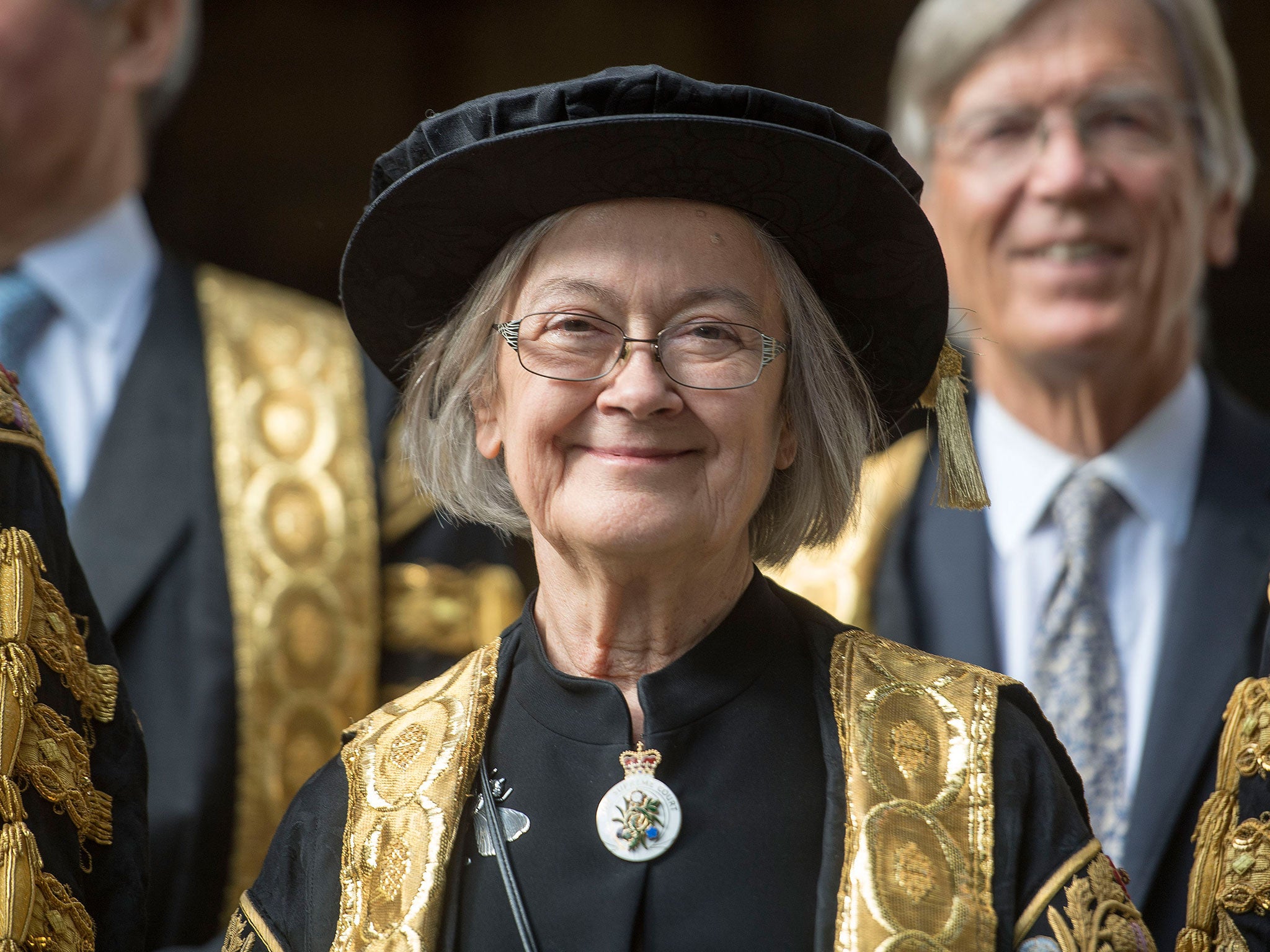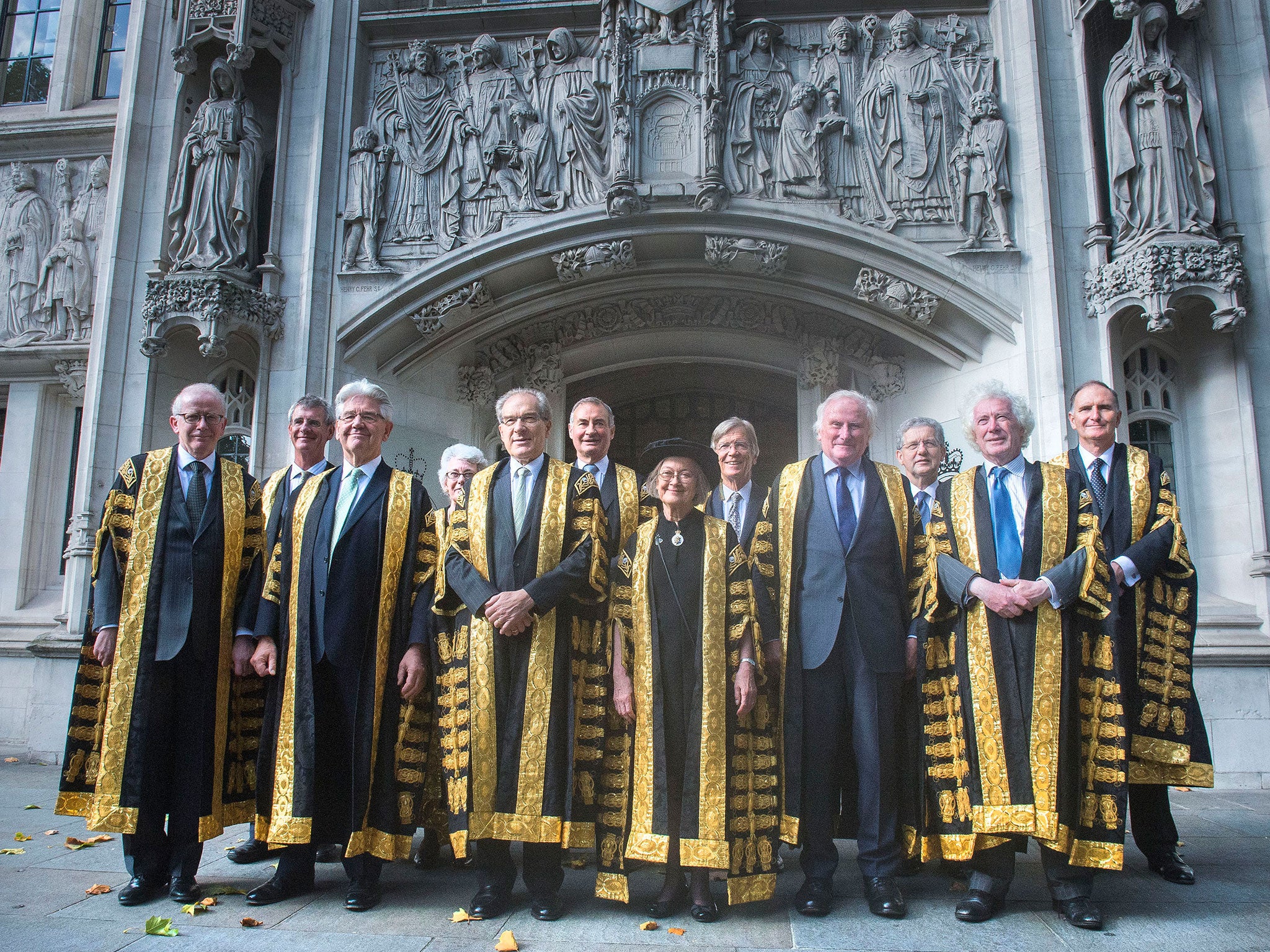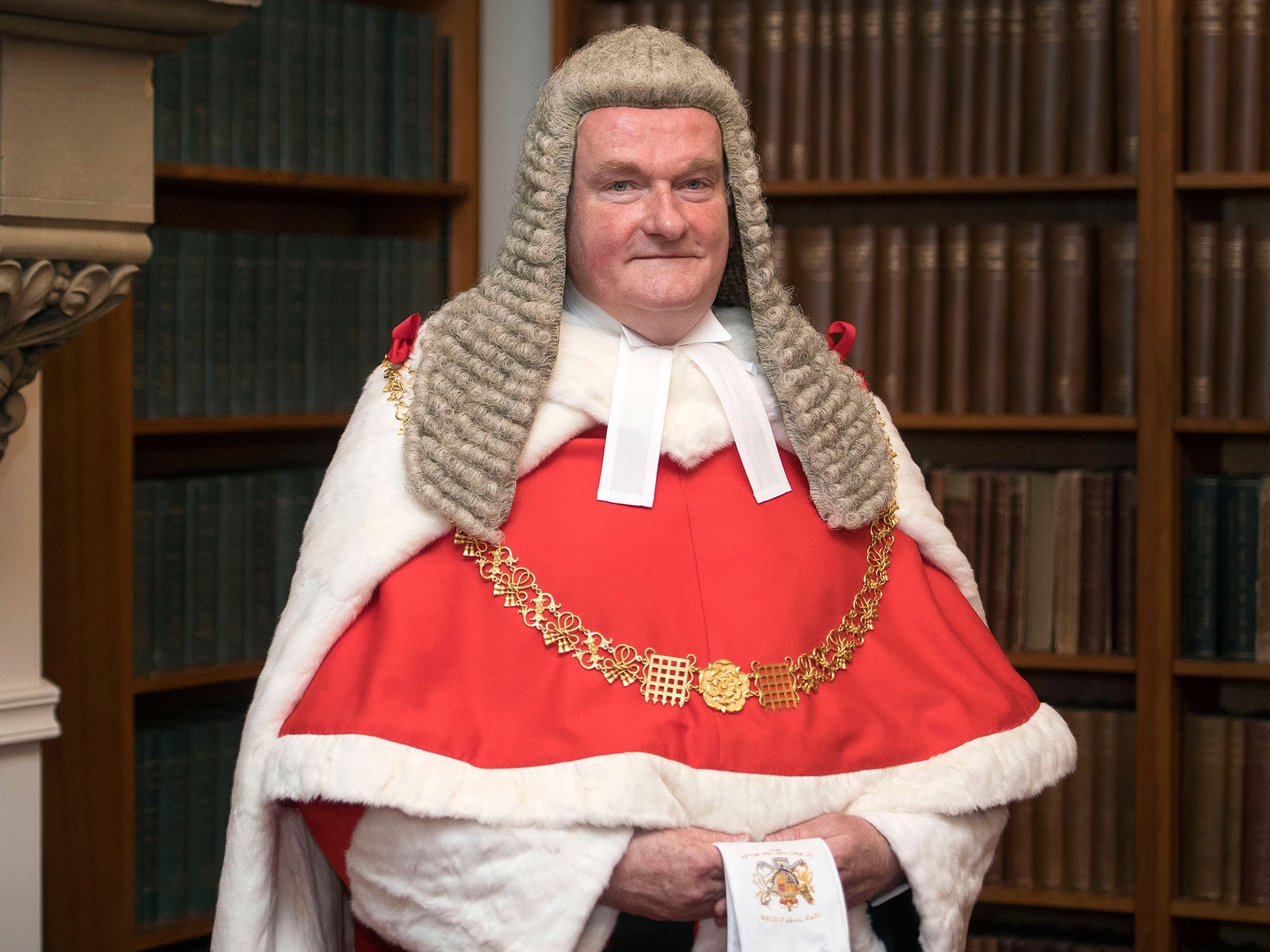Woman becomes president of British Supreme Court in 'historic' first
Lady Hale hailed as 'role model for many' while taking up historic post

Your support helps us to tell the story
From reproductive rights to climate change to Big Tech, The Independent is on the ground when the story is developing. Whether it's investigating the financials of Elon Musk's pro-Trump PAC or producing our latest documentary, 'The A Word', which shines a light on the American women fighting for reproductive rights, we know how important it is to parse out the facts from the messaging.
At such a critical moment in US history, we need reporters on the ground. Your donation allows us to keep sending journalists to speak to both sides of the story.
The Independent is trusted by Americans across the entire political spectrum. And unlike many other quality news outlets, we choose not to lock Americans out of our reporting and analysis with paywalls. We believe quality journalism should be available to everyone, paid for by those who can afford it.
Your support makes all the difference.The first female president of the Supreme Court has hailed a “historic day” while being sworn in as the UK’s most senior judge.
Baroness Hale of Richmond pledged to “do right to all manner of people” while saying her oaths, which were met with applause from fellow judges, international visitors and family and friends.
She sparked a rare outburst of laughter in courtroom one after appearing to bow under the weight of the red box containing her letters patent.
Donning ceremonial robes, Lady Hale said it was a “historic day for the court”, which she played a key part in founding in 2009.
Lord Mance, who was sworn in as her deputy, said the appointment was a “first in many ways”.
“She was not only one of the first justices of the Supreme Court and its first female justice, but today she becomes our first female president - indeed, the first female to head the UK’s highest court in any of its manifestations at any time,” he added.
“She has been and is role model for many, as well as a tireless promoter of women as well as other under-represented groups in the judiciary and among lawyers.

“I have no doubt that Lady Hale will continue to make a very significant contribution to the jurisprudence of this court.”
The historic appointment was announced in a statement from Downing Street and approved by the Queen in July, when Lady Hale welcomed the “honour and challenge” of succeeding Lord Neuberger.
The 72-year-old grew up in Yorkshire, attending a state grammar school in Richmond, before attending Cambridge University and teaching law at Manchester University.
She qualified as a barrister and practiced at the Manchester Bar, where she specialised in family and social welfare law and founded the Journal of Social Welfare and Family Law, becoming the first woman to be appointed to the Law Commission in 1984.
Five years later, Lady Hale became a High Court judge - the first to have made her career as an academic and public servant rather than a practising barrister – and was the second woman ever promoted to the Court of Appeal and first female Law Lord.
She served as the first female Justice of the Supreme Court from its opening in 2009 and took up the post of deputy president four years later.
When her appointment as President was announced, Lady Hale said she planned to use the role to “develop closer links with each part of the United Kingdom, for example by sitting outside London, and improving the ways in which we communicate our work to the public”.
She added: “Recent high-profile cases mean that more people than ever before have heard of the Supreme Court, and we hope that this will help to create a broader understanding of how the judiciary serves society.”
During her time as deputy president of the Supreme Court, she ruled on prominent cases including the Brexit appeal that saw the Government forced to hold a parliamentary vote on Article 50.
Most recently she was on the panel of justices who ruled in favour of John Walker, the gay ex-cavalry officer who won a landmark pensions ruling to secure his husband the same rights as a wife.
Lord Mance said Lady Hale’s original specialisms in family and mental health law had widened to “enormous contributions” in other areas.
At the same ceremony, he was sworn in as deputy president and three new judges took their oaths, including a second female justice, Lady Black.
Figures released earlier this year showed that women and ethnic minorities remain severely under-represented in the judiciary, which has outlined efforts from the Judicial Appointments Commission, universities and professional bodies to improve diversity.
Women make up 28 per cent of court judges and 45 per cent of tribunal judges, while the proportion of BAME judges stands at just 7 per cent.
Although access to the ceremony itself was by invitation only, the Supreme Court remained open to the public for the first time in its history during proceedings, which were also live streamed online.

At a separate ceremony at London's Royal Courts of Justice, Lord Justice Burnett was sworn in as the new Lord Chief Justice.
The 59-year-old Court of Appeal judge takes over as head of the judiciary of England and Wales from Lord Thomas, who held the position from 2013 until his retirement on Sunday.
Sir Ian Burnett, who lives in Essex with his wife and children, has been involved in many high-profile cases during his career, including serving as counsel to the inquests into the deaths of Diana, Princess of Wales and Dodi al-Fayed.
As well as being head of the judiciary, the Lord Chief Justice is also president of the courts of England and Wales and is responsible for representing the views judges to Parliament and the Government.
“At times of great change the central role of the judiciary upholding the rule of law remains a constant, as do our impartiality and independence,” Lord Justice Burnett said.
“These features are embedded in the oath I have taken. They are fundamental to our justice system and underpin the effective and smooth functioning of our society.
“I believe we should be better at explaining our role and the vital importance of our independence and impartiality.”
Join our commenting forum
Join thought-provoking conversations, follow other Independent readers and see their replies
Comments